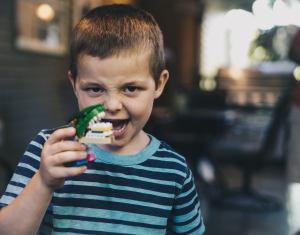
One of the most painful, yet often undetected social phenomena among children is ostracism. Usually, it happens when a leader in a social group, such as a class or a sports team, picks a child as a target for exclusion and turns the rest of the group against the victim. To the child, it is a horrific experience that can scar a young soul for life. Worse yet, a bully who behaves this way feels emboldened by it and is therefore likely to repeat it either toward the victim or toward other children. To cure this social ailment, we need to understand why bullies behave this way and how we can help them adopt more positive patterns of behavior.
Bullies target children they perceive as weak, who do not stand up to them, or who are socially isolated. The bully’s goal is not so much to make the victim feel bad, as it is to make the bully feel good about himself or herself.
Often, bullies come from homes where they feel insecure. They may be suffering from physical or emotional abuse and feel trampled on at home. To compensate for their sense of inferiority at home, they need to feel superior elsewhere, and that other place is likely to be school or a sports team, or any social setting where the bully participates.
Compared to other forms of bullying, the problem with exclusion is that the bully “recruits” the rest of the group to gang up on the victim, leaving the victim socially isolated and without emotional support. For a child, such a situation can be devastating.
To tackle the phenomenon, it is not enough to punish the bully. A punishment might stop the bully from continuing to harass the victim for whom he or she was punished, but it will not stop the bully from looking for other victims because the need to bully will continue. Worse yet, it might make the intimidator continue to bully, but in more stealthy and sinister ways.
Therefore, it is essential to understand why the bully behaves this way, and provide the compensation for the lack that the bully needs in more constructive ways. Instead of the bully seeking compensation by him or herself, the society should offer the compensation in a manner that fills the bully’s emotional deficiency and does not hurt others.
Human nature requires us to feel good about ourselves. If there is a place where we feel inferior, we will not rest until we compensate for it. Therefore, if a person feels loved and supported, he or she will never feel inferior, and will therefore not wish to make others feel unloved or excluded.
The solution to the problem of bullying, therefore, and especially that of ostracism, lies in the hands of society—to create a warm and loving environment for all the children where they can grow and express their unique qualities in a socially-constructive manner, for the benefit of all of society.
If children work together on projects that require everyone’s skills, they will learn to rely on each other, trust each other, and delight in each other’s talents. Most importantly, they will come to care for one another. Instead of envy, their sense of interdependence will bring them to support each other as each child’s unique abilities benefit the entire group. When all the children cooperate in this manner, they form a harmonious society where each individual is fully satisfied and at the same time cares for the rest of all the members of the group.